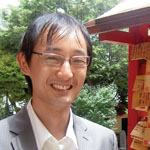
A multiweek visit to the United States by Burmese lawmakers kicked off with a two-day intensive workshop on constitutional reform conducted by David S. Law, JD, PhD, professor of law and of political science, in Arts & Sciences, at Washington University in St. Louis.
The parliament of Burma (officially Myanmar) is expected to take up significant reforms of its 2008 constitution in 2014. An article carried by The Associated Press and The Washington Post identified the workshop participants as key players in Burma’s constitutional reform process. The participants were selected by the U.S. State Department and included members of parliament from the ruling Unity and Democracy Party, the Rakhine Nationalities Development Party, the All Nationals’ Democracy Party, and the National League for Democracy opposition party led by Nobel laureate Aung San Suu Kyi.
The workshop was held Dec. 3 and 4 at the Robert H. Smith Center for the Constitution in Montpelier, Va., and sponsored by the State Department’s International Visitor Leadership Program. The State Department’s move comes as the nation of Burma — which is undergoing rapid democratization after five decades of military rule — is struggling with a rise in sectarian violence that has displaced more than 200,000 people, according to The Washington Post.
The curriculum included mechanisms and strategies for amending a constitution; options for structuring a federal system of government; the decentralization of control over natural resources; protection of minority rights; the role of the judiciary in promoting democracy and enforcing constitutional guarantees; and strategies for promoting the rule of law. Law was selected to conduct the workshop for his interdisciplinary background and expertise on global constitutionalism, constitutional drafting, design of government institutions, and Asian constitutionalism in particular.
“I am incredibly grateful for the opportunity to work with this group of lawmakers at such a pivotal time in Burma’s history,” Law said. “It’s so rare to have the opportunity to bring together comparative constitutional law and political science in a collaborative, real-life, problem-solving setting. It’s a privilege and an honor to have the chance to be helpful in whatever small way that I can.”
Law’s previous experience in this area includes traveling to Yemen with the U.N. Special Envoy as a consultant on nation-building and constitutional reform matters. He holds a PhD in political science from Stanford University, a law degree from Harvard University, and a degree in European and comparative law from the University of Oxford.